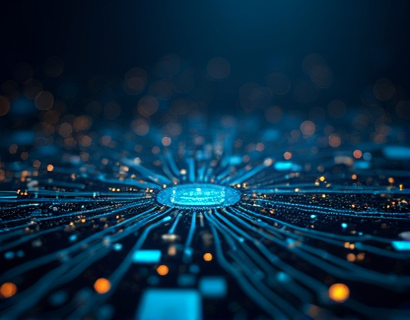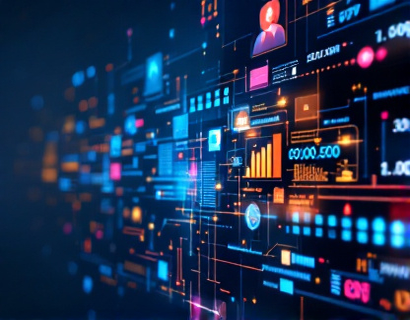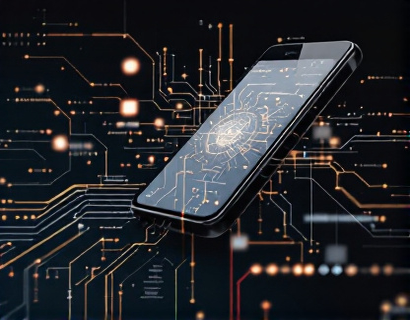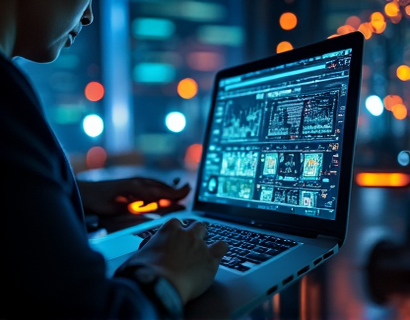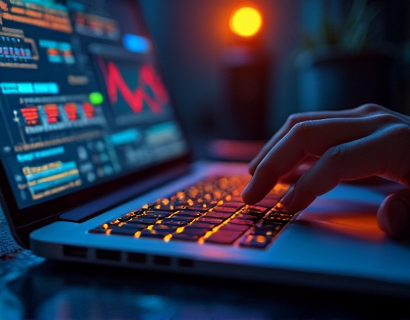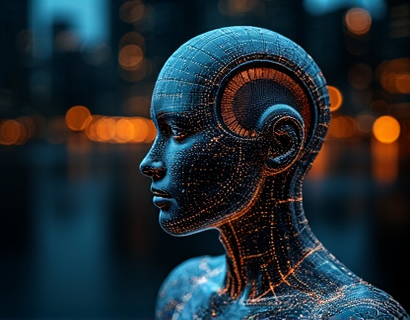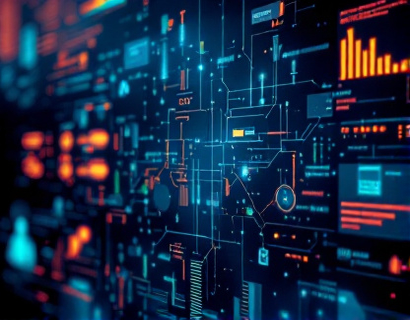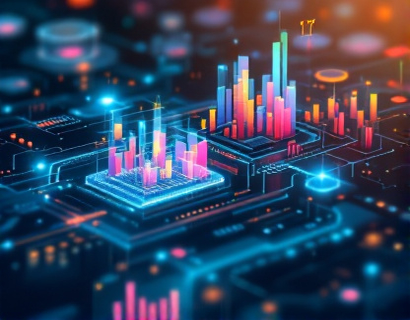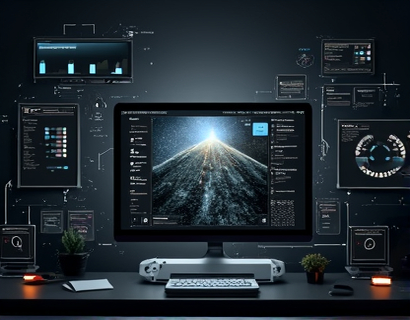Unlocking the Potential of Crypto and AI: A Guide to Advanced Digital Solutions for Enhanced Productivity
The intersection of cryptocurrency and artificial intelligence represents a revolutionary frontier in the digital world, offering unprecedented opportunities for tech-savvy professionals and early adopters to enhance their productivity and streamline their daily tasks. This article delves into the synergy between these two transformative technologies, exploring how they can be harnessed to create advanced digital solutions that redefine efficiency and innovation.
In the modern digital landscape, the demand for efficient and intelligent tools is higher than ever. Tech-savvy individuals and organizations are constantly seeking ways to optimize their workflows, reduce manual labor, and gain a competitive edge. The integration of cryptocurrency and AI provides a powerful toolkit for achieving these goals, enabling the development of decentralized, secure, and highly efficient systems.
Understanding Cryptocurrency and AI
Cryptocurrency, often referred to as digital or virtual currency, operates on blockchain technology, a decentralized ledger that ensures transparency, security, and immutability. Bitcoin, the first and most well-known cryptocurrency, paved the way for thousands of alternative coins and tokens, each with unique features and use cases. Beyond being a medium of exchange, cryptocurrencies serve as a medium for decentralized applications (dApps) and smart contracts, which automate and enforce agreements without intermediaries.
Artificial intelligence, on the other hand, encompasses a range of technologies that enable machines to perform tasks that traditionally required human intelligence, such as learning, reasoning, and problem-solving. AI algorithms can process vast amounts of data, identify patterns, and make predictions, significantly enhancing decision-making processes. The combination of blockchain's transparency and AI's computational power creates a synergistic effect that can drive significant advancements in various industries.
Enhancing Productivity with Crypto and AI
The convergence of cryptocurrency and AI can lead to the development of advanced digital solutions that streamline tasks and boost productivity. One of the primary ways this synergy manifests is through the creation of decentralized platforms that leverage AI for automated and optimized operations.
For instance, decentralized finance (DeFi) platforms utilize AI to provide automated trading, risk management, and portfolio optimization. These platforms eliminate the need for intermediaries, reducing transaction costs and increasing the speed of financial operations. AI algorithms can analyze market data in real-time, making informed decisions that traditional systems cannot match.
Another area where crypto and AI intersect is in the realm of supply chain management. By integrating blockchain for transparent and secure tracking of goods, combined with AI for predictive analytics and optimization, businesses can achieve unprecedented levels of efficiency. AI can predict demand, optimize inventory levels, and identify bottlenecks, while blockchain ensures that all transactions are recorded and verifiable, reducing fraud and errors.
Smart Contracts and Automated Workflows
Smart contracts, self-executing contracts with the terms directly written into code, are a cornerstone of blockchain technology. When combined with AI, smart contracts can become even more powerful, automating complex workflows and ensuring that all conditions are met before executing transactions.
For example, in the real estate sector, smart contracts can handle the entire process of property transactions, from initial offer to final settlement. AI can analyze market trends, assess property values, and even conduct due diligence, all within the smart contract framework. This not only speeds up the process but also reduces the risk of human error and fraud.
In the context of project management, AI-driven smart contracts can automate milestones, payment releases, and task assignments based on predefined criteria. This ensures that projects stay on track and that all stakeholders are held accountable, enhancing overall productivity and collaboration.
Enhancing Security and Trust
Security and trust are paramount in any digital transaction, and the combination of cryptocurrency and AI offers robust solutions to these challenges. Blockchain's inherent security features, such as cryptographic hashing and consensus mechanisms, provide a high level of protection against tampering and cyber threats.
AI can further enhance security by detecting and mitigating potential threats in real-time. Machine learning algorithms can analyze patterns and identify anomalies that may indicate malicious activity. For instance, AI can monitor blockchain networks for unusual transaction patterns, flagging potential fraud or hacking attempts before they cause significant damage.
Moreover, AI can improve the user experience by providing personalized security measures. For example, AI-driven authentication systems can use biometric data and behavioral analysis to ensure that only authorized users access sensitive information, adding an extra layer of security to crypto transactions and dApps.
Optimizing Resource Allocation
Resource allocation is a critical aspect of any operation, and the integration of AI with cryptocurrency can lead to more efficient and sustainable practices. AI can optimize the use of computational resources in blockchain networks, reducing energy consumption and lowering costs.
For instance, AI algorithms can dynamically adjust the difficulty of mining tasks based on network conditions, ensuring that resources are used efficiently without compromising security. This not only makes blockchain more environmentally friendly but also makes it more accessible and cost-effective for users.
In the realm of cloud computing, AI can optimize the allocation of computing power and storage resources, ensuring that applications run smoothly and efficiently. By leveraging blockchain for secure and transparent resource management, organizations can benefit from a decentralized and resilient infrastructure that enhances overall productivity.
Case Studies and Real-World Applications
Several real-world applications demonstrate the potential of combining cryptocurrency and AI to enhance productivity. One notable example is the use of AI in the insurance industry, where blockchain ensures transparent and secure data sharing, while AI algorithms process claims more efficiently and accurately.
Another example is in the healthcare sector, where AI-powered diagnostic tools can analyze medical data stored on a blockchain, providing doctors with accurate and up-to-date information. This not only speeds up the diagnostic process but also ensures that patient data is secure and tamper-proof.
In the logistics industry, companies are using blockchain to track the movement of goods in real-time, combined with AI for route optimization and demand forecasting. This results in faster delivery times, reduced costs, and improved customer satisfaction.
Challenges and Considerations
While the potential of combining cryptocurrency and AI is vast, there are several challenges and considerations that must be addressed. One of the primary concerns is the regulatory landscape, as both cryptocurrencies and AI are subject to varying degrees of regulation across different jurisdictions. Ensuring compliance and navigating the legal complexities is crucial for the successful implementation of these technologies.
Another challenge is the technical expertise required to develop and maintain crypto and AI systems. Organizations need to invest in skilled professionals who can bridge the gap between these two domains, ensuring that solutions are both secure and effective.
Additionally, there is the issue of scalability. As the adoption of these technologies grows, ensuring that systems can handle increasing loads without compromising performance is essential. AI can play a role here by optimizing system resources and predicting potential bottlenecks.
Future Trends and Innovations
The future of crypto and AI is promising, with ongoing research and development poised to unlock even more advanced digital solutions. One area of focus is the integration of AI with other blockchain-based technologies, such as the Internet of Things (IoT) and 5G networks, to create seamless and intelligent ecosystems.
Quantum computing, while still in its infancy, has the potential to revolutionize AI by solving complex problems that are currently infeasible for classical computers. When combined with blockchain, quantum computing could lead to breakthroughs in cryptography, further enhancing the security and efficiency of decentralized systems.
Moreover, the development of more user-friendly interfaces and tools will democratize access to crypto and AI technologies, making them more accessible to a broader audience. This will foster innovation and drive widespread adoption, leading to a more connected and efficient digital world.
In conclusion, the synergy between cryptocurrency and AI represents a powerful force for enhancing productivity and innovation in the digital age. By leveraging the strengths of both technologies, we can create advanced digital solutions that streamline tasks, improve security, and optimize resource allocation. As the landscape continues to evolve, tech-savvy professionals and early adopters will be at the forefront of this transformation, shaping the future of digital productivity.










